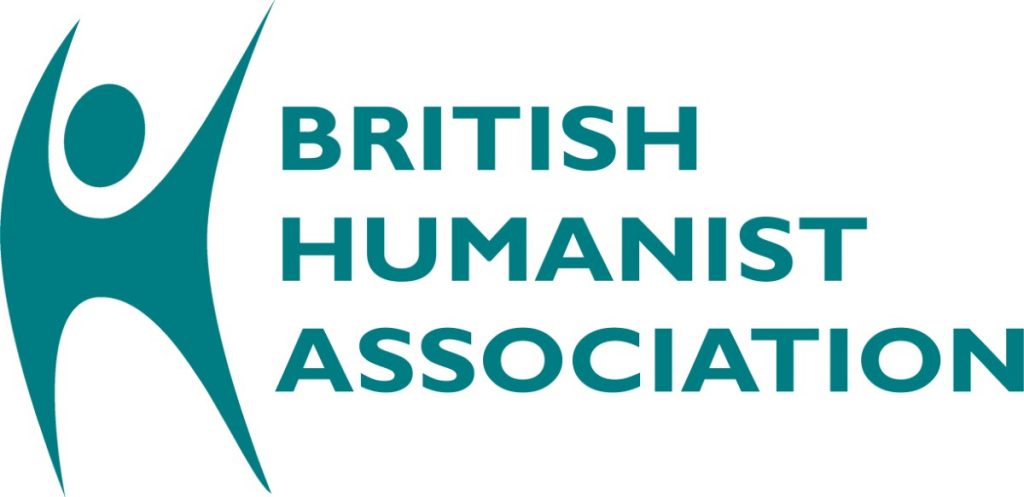BHA: Humanists in Parliament meet to discuss faith-based school admissions
The All Party Parliamentary Humanist Group (APPHG) met yesterday in the House of Lords to discuss religious selection in school admissions, and the harmful effects this has on society. Humanist MPs and peers were addressed by Professor Ted Cantle CBE, founder of the Institute of Community Cohesion and author of the eponymous report into the 2001 race riots; Rabbi Dr Jonathan Romain MBE, minister of Maidenhead Synagogue and Chair of the Accord Coalition; and Jeremy Rodell and Natalie Raja, members of the Richmond Inclusive Schools Campaign (RISC). The meeting was chaired by Chair of the APPHG, Lord Warner of Brockley. The British Humanist Association (BHA) provides the secretariat to the APPHG.
State funded schools with a religious character have an exemption in the Equality Act which allows them to legally select pupils on the basis of faith. The BHA believes that such selection is discriminatory and divisive, with evidence showing that it calls socio-economic as well as ethno-religious segregation.
Speaking first, Ted Cantle talked about how the Cantle Report found segregated schools were a major contributor to different ethnic communities in a locality living ‘parallel lives’, with religious school admissions being a big contributor to this issue. Ted pointed to evidence showing that UK schools are the most segregated in Europe, and how the situation has got worse in the decade since he wrote his report. He also lamented the fact that Ofsted is no longer required to inspect schools specifically on their contribution to community cohesion, which previously guaranteed all schools were mindful of their separate legal duty to promote it.
Jeremy Rodell is chair of RISC, while Natalie Raja is a local parent as well as a member of RISC’s core team. Jeremy spoke about RISC’s campaign over the last two years against proposals, now approved, to establish two voluntary aided Roman Catholic schools in Richmond upon Thames. The schools were proposed by the Diocese outside of competition, but with the Council spending £10 million to purchase the site they will use. The campaign resulted in a disappointingly unsuccessful judicial review, taken jointly with the BHA, which led to the Government seemingly contradicting what it said in Parliament, in order to allow the Catholic Church to continue to set up 100% selective ‘faith’ schools. Jeremy emphasised that RISC was a broad coalition with supporters from across the religion and belief spectrum, and that admissions was really the key issue. Jeremy asked, ‘How can it be right for a state-funded school to turn away local children simply because of their parents’ religion or belief?’
Following on from this, Natalie described how her personal experience of unfairness when it came to her children’s acceptance to schools led her to decide to get involved in RISC. She recalled attending open days at her three nearest schools, only to find her children could not get into any of them because she and her husband are not Christians. One of them has an admissions policy which selects seven different categories of children of Catholics, before finally turning to other looked after children in category number 8. Natalie said that she is not happy that her children will not sit next to children of Catholics in their school.
Finally, Jonathan Romain asked everyone to imagine if other parts of the state system could discriminate in this way – ‘no Jews in the army’ or ‘no Catholics in hospitals’. Jonathan argued passionately that ‘it is right that state schools are inclusive both in principle and because it is best for society’.
The BHA, Accord and others will be doing more work in this area over the coming months, and will be making announcements in due course.
Notes
For further comment or information contact Pavan Dhaliwal, Head of Public Affairs and APPHG Administrator, at pavan@humanism.org.uk or on 0773 843 5059.
Read more about the BHA’s campaigns work on ‘faith’ schools: http://humanism.org.uk/campaigns/schools-and-education/faith-schools/
Read the BHA’s table of types of school with a religious character: http://www.humanism.org.uk/wp-content/uploads/schools-with-a-religious-character.pdf
The British Humanist Association is the national charity working on behalf of non-religious people who seek to live ethical and fulfilling lives on the basis of reason and humanity. It promotes a secular state and equal treatment in law and policy of everyone, regardless of religion or belief.





-01.png)